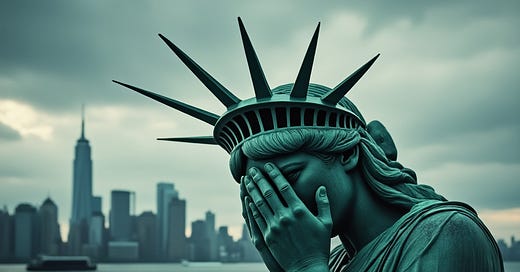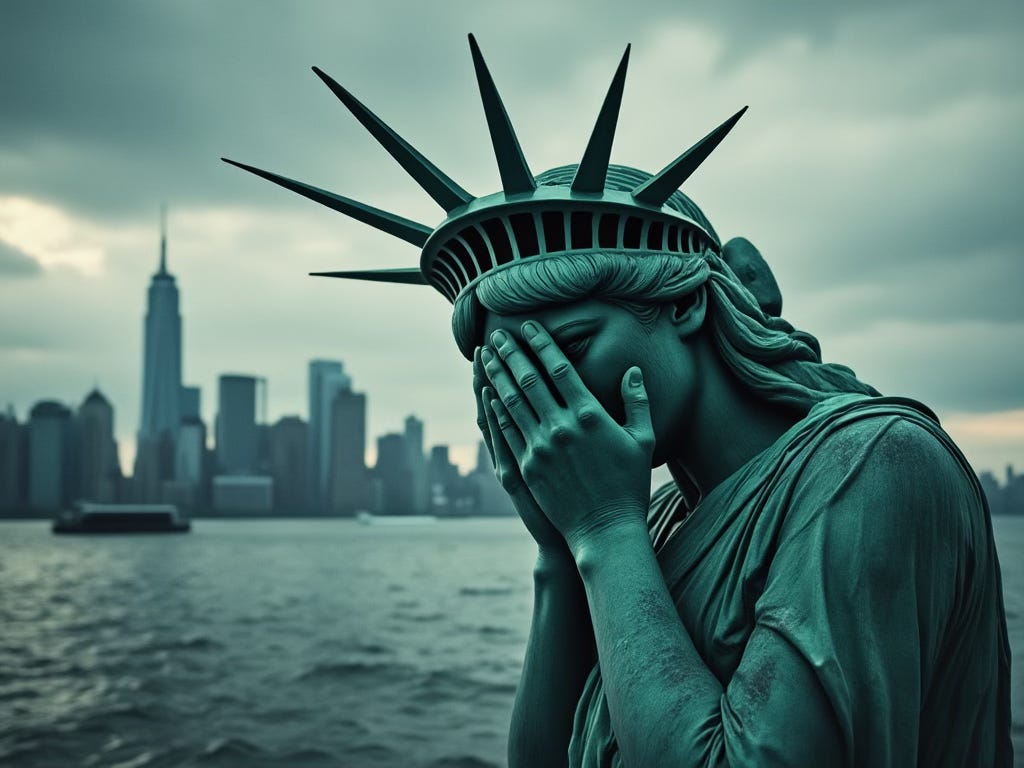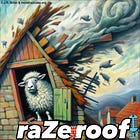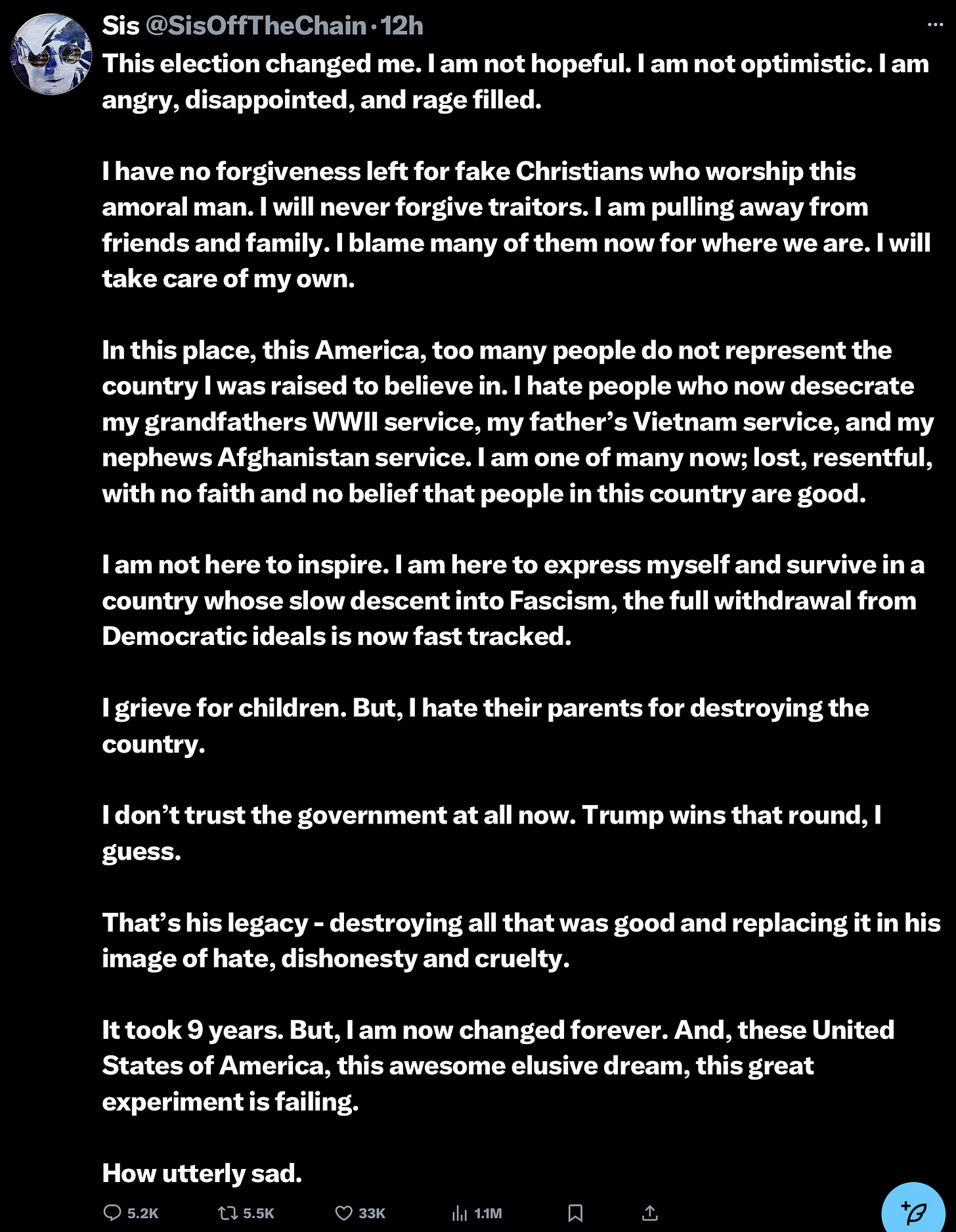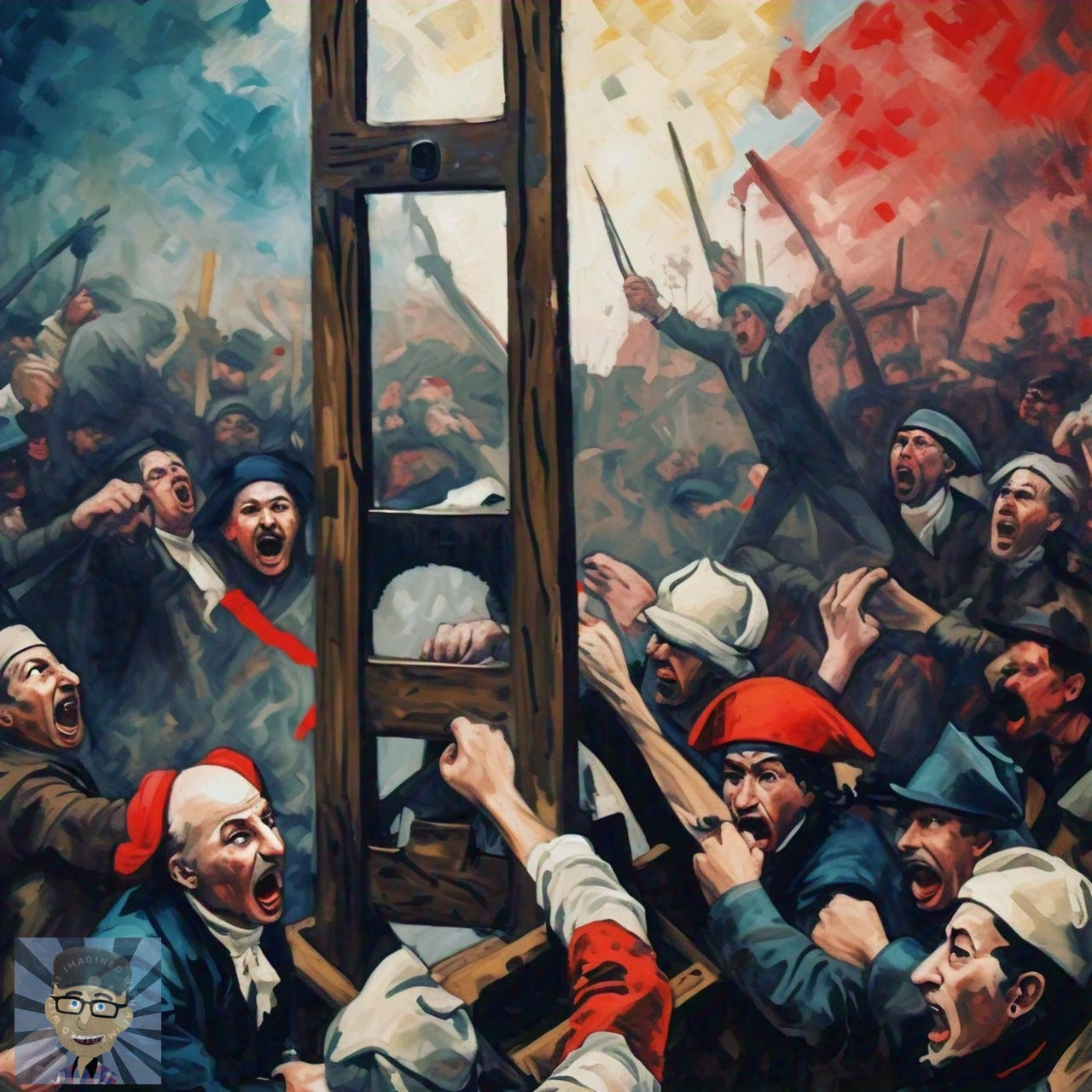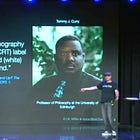I hear a lot of people saying, “a vote for Donald Trump is a vote to end democracy.” But what does this slogan mean? What danger does Trump poses? In 2019, Shawn Rosenberg, a professor at UC Irvine, argued that Trump’s populism is a symptom of the bigger sickness endangering our democracy.
As much as President Donald Trump’s liberal critics might want to lay America’s ills at his door, Rosenberg says the president is not the cause of democracy’s fall—even if Trump’s successful anti-immigrant populist campaign may have been a symptom of democracy’s decline.
We’re to blame, said Rosenberg. As in “we the people.”
Rosenberg’s thesis is that evolution has not equipped human beings to mentally or emotionally handle the complexities of democracy. Our inborn biases, he believes, make humans susceptible to misinformation. Our instinctive need for simplistic solutions make us vulnerable to Trump’s right-wing manipulation which, in turn, undermine our ability to engage in rational discourse.
Rick Shenkman’s takeaway from Rosenberg’s work was that the fundamental danger to our democracy is not really Trump but the ignorant electorate that refuses to trust their intellectual betters to tell them what is true.
“While the elites formerly might have successfully squashed conspiracy theories and called out populists for their inconsistencies, today fewer and fewer citizens take the elites seriously. Now that people get their news from social media rather than from established newspapers or the old three TV news networks (ABC, CBS and NBC), fake news proliferates.”
Five years later, Shenkman’s narrative has consumed the Left. Critics of Trump, like Stephen King, are convinced that only stupid people vote for Republicans.
King’s belief that all those who voted for Trump are simplistic rubes incapable of complex thought has led other Leftists like the Ivy League educated host of The View, Sunny Hostin to blame ignorant white women (women who don’t look like her) for electing Trump.
“Black women tried to save this country again, last night…what we do not have is white women, who voted about 52 percent for Donald Trump—uneducated white women is my understanding,"
For a verity of reasons I find Hostin’s characterization of people without a college degree as “uneducated” distasteful. A college degree is not a prerequisite for intelligence. But set aside for the moment her elitist propaganda, it’s nonsensical to suggest that the only way to preserve democracy is to uncritically trust the news as the inerrant source of Pravda (truth).
The irony of Hostin’s claim is that in her zeal to defeat Trump’s populism, she has become the very thing she hates, a threat to democracy.
But don’t take my word for it, Shenkman’s 2019 article warned of this exact thing.
Democracy is hard work and requires a lot from those who participate in it. It requires people to respect those with different views from theirs and people who don’t look like them. It asks citizens to be able to sift through large amounts of information and process the good from the bad, the true from the false. It requires thoughtfulness, discipline and logic.
Hostin’s bigotry towards white people and towards those who did not choose to attend college, represents the exact opposite of the thoughtfulness, discipline and logic necessary for a thriving democracy. The rhetoric from the Left tells me that Friedrich Nietzsche’s warning,“be careful when you fight the monsters, lest you become one” has become reality for the anti-Trumpers. King Randall, I. shares his experience on X.
The Greatest Danger
As a Christian, I don’t see race, misinformation, women, men, elitism, or populism as the greatest threat. I think the deeper threat is that we are culturally blinded by a tribalistic worldview which leads to prejudice, hostility, and even the denial of full humanity to those outside our social group.
The tribalism on the Left is fueled by the goal of political equity which prioritizes the interests of the preferred tribe over the common good. Leftist tribalism will lead to the erosion of individual rights and the eventual demise of democracy. The tribalistic mindset fosters hatred and undermines the principles of respect, tolerance, and reasoned discourse which are necessary for a functioning society. This post on X by John Pavlovitz is one of many examples the growing intolerant tribalism.
Ironically, Pavlovitz who is author of “If God is Love, Don't Be a Jerk” embodies the very opposite of biblical love. This next example comes from a now deleted X account which models Pavlovitz’s theology of tribalist hatred.
In both examples, not only do Pavlovitz and Sis reject the message, they reject the messenger. This is why I’m convinced that dehumanization in the name of preserving democracy is the real danger we face and we would do well to learn this lesson before we repeat the evils of the French Revolution.
Lessons from the French Revolution
The french revolution of 1848 was inspired by thinkers like Jean-Jacques Rousseau and proceeded by several years of economic depression, increasing food prices, and high unemployment. (Does that sound familiar?) In January 1848, the government made moves to limit the right to assembly and even went so far as to require government permits for meetings over six people. In response, the people protested. Protestors cut down trees and built for themselves barricades to cordon off the streets of Paris. Eventually a new Provisional Government was formed with a strong centralized authority over the people. This government promised jobs, equity, and security for everyone. By February 26th, the old monarchy was dead and a new French Republic was born. The Red Flag of socialism became the new standard for France.
On January 27, amidst the revolution, Alexis de Tocqueville, gave a speech before the Chamber of Deputies in which he lamented the radicalization of the people. Tocqueville warned:
“…what is happening in the class which governs disturbs and frightens me. What I see, gentlemen, can be put in a word: public mores are changing and have already profoundly changed; the change grows greater from day to day; common opinions, feelings, and ideas are more and more being replaced by particular interests, particular aims, and points of view carried over from private life and private interests.”
In other words, with the rise of socialism society became balkanized—fractured into interest groups who cared little for the common good. Politicians served to please their interest groups and financial donors.
Not surprisingly, so much of the French revolution of 1848 mirrors the rapid change in social norms and moral priorities here in the United States. The critical framework of intersectionality is just one influence that is reshaping America into a nation of tribalized interest groups who see other “tribes” as either allies or enemy. There is no common good; there is only tribal good. And, just as it was for France, political corruption was dismissed, justified, and defended as long as the corruption served the interest of one’s tribe. The following observation regarding the French revolution by Tocqueville holds true for us today:
“Note that I do not say this as a moralist, but as a politician; do you know what is the general, effective, deep cause which makes private mores turn corrupt? It is the change in public mores. It is because morality does not prevail in the main acts of life, that it does not find its way down into the least important ones. Because interest has replaced disinterested feelings in public life, interest sets the tone in private life.”
The shift in private morals matters because ultimately the socialist goal of political equity leads to oppression of any person—or group of persons—outside the tribe in power. Tocqueville’s warning holds true for us today:
Democracy extends the sphere of individual freedom, socialism restricts it. Democracy attaches all possible value to each man; socialism makes each man a mere agent, a mere number. Democracy and socialism have nothing in common but one word: equality. But notice the difference: while democracy seeks equality in liberty, socialism seeks equality in restraint and servitude.
More to the point, he said
Americans are so enamored of equality, they would rather be equal in slavery than unequal in freedom.
My point here is not to say democracy is perfect or that democracy is the only “Christian” form of government. My goal here is to point to the shift in morals as a warning of the dehumanization that inevitably comes with socialist tribalism.
As de Tocqueville recognized, the American form of democracy (our constitutional republic) cannot survive a tribalist morality.
In a tribalist system, misinformation and fake news become tools of manipulation that no amount of education can overcome. The problem is not our inability to understand what is true, it is the ultimate denial of any truth outside one’s group. When one tribe, and their allies, vote men and women into power who offer only certain groups the benefit of rights, then democracy is dead. To counter the inevitable oppression, the people are forced to make a Machiavellian gambit and cede their rights to the political elites.
Consequently, the value of the individual shrinks and the value of tribalist identity grows. Why? Because in the progressive utopia the tribes, not the individual person, have the power to put people into office. The politicians favor the interest group over the common good. What’s unfolding before our eyes is a return to the Greek system of justice that denied rights to one’s political enemies:
“Justice is doing good to friends and harm to enemies.” — Simonides of Ceos
Justice is “the interest of the stronger” — Thrasymachus
You don’t like the label of socialist. You say America is not France. Fine. Choose any political label you like. Regardless of the label you prefer, the danger remains the same. This historical comparison between France and the United States serves as a cautionary tale about the potential consequences of unchecked tribalism. The tribal justice which dominates the progressive Left portends a terrible future for America. Any individual who finds their identity outside the tribal power systems approved by the elites will be marginalized and dehumanized. The rights of the powerful will by design subvert the rights of the weak. Justice will become a shifting standard tied to the social construct of tribal identity rather than the Christian ethic that treats every individual as a beautiful image bearer of God’s image.
Not only will the shift toward progressive morals bring the end of democracy, it will bring the end of human sacredness in America.
Take A Deep Dive
Explore my article through the lens of AI. Paid subscribers can join me in a conversation in the comments section.
What are the potential dangers of tribalism and its influence on American democracy?
How does the historical precedent of the French Revolution inform the potential trajectory of American politics?
What are the key differences between democracy and socialism as ideologies, and how do they impact individual freedom?


